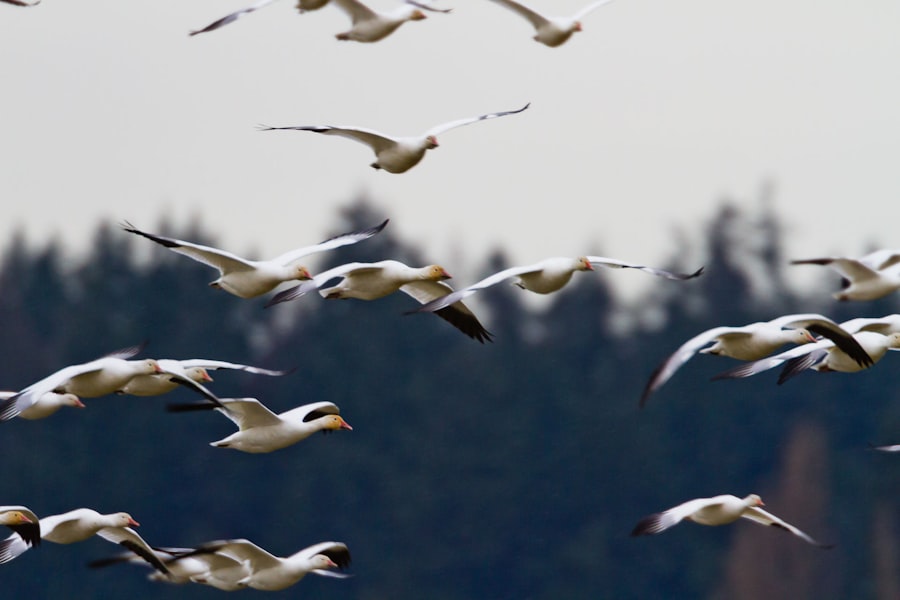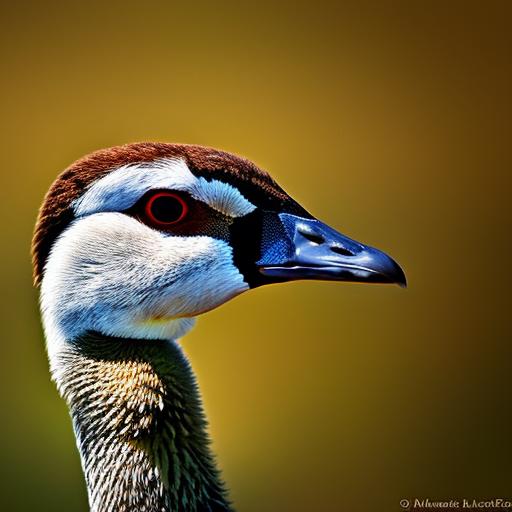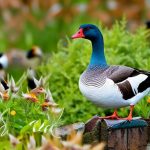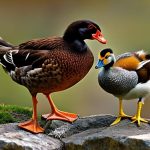Keeping geese as a hobby or business in Australia can be a rewarding and fulfilling experience. Geese are known for their meat, eggs, feathers, and pest control abilities, making them a valuable addition to any farm or backyard. However, there are also challenges that come with keeping geese, such as their noise, mess, and potential aggression. In this article, we will explore the benefits and challenges of keeping geese in Australia and provide tips and tricks for successful goose keeping.
One of the main benefits of keeping geese is the variety of products they provide. Geese meat is known for its rich flavor and is often considered a delicacy. Their eggs are larger than chicken eggs and have a unique taste. Geese feathers can be used for crafts and decorations. Additionally, geese are excellent at pest control. They eat insects and weeds, helping to keep your garden or farm free from unwanted pests.
However, there are also challenges that come with keeping geese. Geese can be noisy, especially during breeding season or when they feel threatened. They can also create a mess with their droppings, which can be difficult to clean up. Furthermore, some geese breeds can be aggressive, especially if they feel their territory is being invaded. It is important to be aware of these challenges and take appropriate measures to address them.
Key Takeaways
- Keeping geese in Australia has benefits such as pest control, egg and meat production, and companionship, but also comes with challenges such as enclosure building and disease prevention.
- Choosing the right breed of geese for Australian climates is important, with popular breeds including Embden, Toulouse, and Chinese geese.
- Building a safe and secure goose enclosure involves considerations such as predator protection, adequate space, and proper ventilation.
- Best practices for feeding and watering geese in Australia include providing a balanced diet, clean water, and avoiding overfeeding.
- Common diseases in geese include avian influenza and botulism, with preventive measures including vaccination and proper sanitation.
Choosing the Right Breed of Geese for Australian Climates
When choosing a breed of geese for Australian climates, it is important to consider factors such as climate, space, and purpose. Different breeds have different characteristics that make them more suitable for certain climates. For example, some breeds are better suited for colder climates, while others are more tolerant of heat.
Some popular goose breeds in Australia include the Embden, Toulouse, and Chinese breeds. The Embden breed is known for its large size and white feathers. They are hardy and can tolerate a wide range of climates. The Toulouse breed is also large and has gray feathers. They are known for their calm and docile nature. The Chinese breed is smaller in size and has a distinctive knob on its head. They are known for their excellent foraging abilities.
It is important to research different breeds and their characteristics to determine which one is best suited for your climate and purpose. Consider factors such as the availability of water, space requirements, and the intended use of the geese (meat, eggs, or pest control). Consulting with local breeders or experienced goose keepers can also provide valuable insights.
Building a Safe and Secure Goose Enclosure: Tips and Tricks
Building a safe and secure enclosure is essential to protect geese from predators and prevent them from escaping. Geese are vulnerable to predators such as foxes, dogs, and birds of prey, so it is important to ensure that the enclosure is secure and predator-proof.
When building a goose enclosure, consider the size, materials, and location. Geese require ample space to roam and graze, so the enclosure should be large enough to accommodate their needs. The materials used should be sturdy and able to withstand the weather conditions in your area. The location should be well-drained and provide access to fresh water.
In addition to providing a secure enclosure, it is also important to make the enclosure comfortable and stimulating for geese. Geese enjoy water features such as ponds or shallow pools where they can swim and bathe. Providing hiding spots such as bushes or shelters can also help reduce stress and provide a sense of security for the geese.
Feeding and Watering Geese in Australia: Best Practices
Feeding geese a balanced diet is essential for their health and well-being. Geese require a diet that is high in protein, calcium, and greens. Protein can be provided through commercial goose feed or through natural sources such as insects and worms. Calcium is important for egg production and can be provided through crushed oyster shells or limestone grit. Greens such as grass, weeds, and leafy vegetables should also be included in their diet.
It is important to provide clean and accessible water for geese. Geese require water for drinking, bathing, and preening. A pond or trough can be used to provide water for geese. It is important to ensure that the water is clean and free from contaminants. Regularly cleaning and refilling the water source is essential to prevent the spread of diseases.
When feeding geese, it is important to avoid toxic foods such as chocolate, onions, and avocado. These foods can be harmful or even fatal to geese. It is also important to avoid overfeeding geese, as this can lead to obesity and health problems.
Health and Wellness of Geese: Common Diseases and Preventive Measures
Keeping geese healthy is essential for their overall well-being and productivity. Geese are susceptible to a variety of diseases, including avian influenza, botulism, and parasites. It is important to take preventive measures to keep geese healthy and minimize the risk of disease outbreaks.
Vaccination is an important preventive measure for geese. Vaccines are available for diseases such as avian influenza and Newcastle disease. It is recommended to consult with a veterinarian to determine the appropriate vaccination schedule for your geese.
Maintaining good hygiene practices is also important for preventing the spread of diseases. Regularly cleaning the goose enclosure, providing clean water, and practicing good biosecurity measures can help minimize the risk of disease transmission.
It is important to monitor the health of your geese and be aware of signs of illness. Common signs of illness in geese include loss of appetite, lethargy, respiratory distress, diarrhea, and abnormal behavior. If you notice any of these signs, it is important to seek veterinary care as soon as possible.
Breeding and Hatching Geese: Essential Tips for Successful Reproduction

Breeding and hatching geese can be a rewarding experience. Geese are monogamous and mate for life. When breeding geese, it is important to choose compatible mates. Geese that are not compatible may exhibit aggressive behavior towards each other or may not successfully reproduce.
Providing a suitable nesting area is essential for successful reproduction. Geese prefer to nest in secluded areas, such as tall grass or shrubs. Providing nesting boxes or shelters can help create a suitable nesting environment for geese.
Incubating and hatching goslings require careful temperature and humidity control. The incubation period for geese eggs is approximately 28-34 days. During this time, the temperature should be maintained at around 99-100 degrees Fahrenheit (37-38 degrees Celsius) with a humidity level of around 55-60%. It is important to regularly monitor the temperature and humidity levels to ensure successful hatching.
Managing the Behavior of Geese: Dealing with Aggression and Territoriality
Geese can exhibit aggressive behavior, especially during breeding season or when they feel their territory is being invaded. It is important to manage their behavior to ensure the safety of both the geese and their caretakers.
When dealing with aggressive geese, it is important to avoid eye contact and sudden movements, as these can be perceived as threats. Using deterrents such as noise makers or water sprays can also help discourage aggressive behavior.
Territorial behavior can be reduced by providing enough space and resources for the geese. Ensuring that there are ample feeding and watering areas can help reduce competition and territorial disputes among geese.
Using Geese for Pest Control: Effective Ways to Control Insects and Weeds
Geese are natural pest controllers and can be used to control insects and weeds in gardens or farms. Geese are known for their voracious appetite and can eat a wide variety of insects and weeds.
To effectively use geese for pest control, it is important to provide them with access to problem areas. For example, if you have a garden infested with slugs, you can allow the geese to graze in the garden and eat the slugs. Training geese to target specific pests can also be beneficial.
However, it is important to avoid overgrazing and other negative impacts on the environment. Rotating the geese to different areas and providing supplemental feed can help prevent overgrazing and ensure that the geese are getting a balanced diet.
Selling Geese and Their Products: Opportunities and Regulations in Australia
There are opportunities for selling geese and their products in Australia. Geese meat, eggs, and feathers are in demand by consumers who appreciate their unique taste and quality. Additionally, there is a growing market for organic and free-range products, which can be targeted by goose farmers.
However, there are regulations and requirements that need to be followed when selling geese and their products in Australia. These regulations may include licensing, labeling, and food safety standards. It is important to familiarize yourself with these regulations and ensure compliance before selling geese or their products.
Marketing and selling geese and their products can be done through various channels, such as farmers markets, online platforms, or direct sales to restaurants or specialty stores. Targeting niche markets, such as gourmet restaurants or organic food stores, can help differentiate your products and attract customers. Utilizing social media platforms can also be an effective way to reach potential customers.
The Joys and Rewards of Keeping Geese in Australia
Keeping geese in Australia can be a rewarding and fulfilling experience. Despite the challenges that come with keeping geese, the benefits such as their meat, eggs, feathers, and pest control abilities make them a valuable addition to any farm or backyard. By choosing the right breed, building a safe and secure enclosure, providing proper nutrition and care, managing their behavior, and utilizing their natural pest control abilities, geese can thrive and provide a unique and rewarding experience for their caretakers. So why not consider keeping geese and enjoying the joys and rewards that come with this unique hobby or business?
If you’re interested in keeping geese in Australia, you may also find this article on poultrywizard.com helpful. It provides valuable insights into creating the perfect environment for your geese, just like it does for chickens. From tips on designing a suitable coop, such as the Hannah Montana Chicken Coop (link), to ideas for the interior of your coop (link), and even guidance on where to place your chicken coop (link), this article covers all aspects of creating a comfortable and safe space for your feathered friends.
FAQs
What are the regulations for keeping geese in Australia?
In Australia, regulations for keeping geese vary by state and territory. It is important to check with your local government authority for specific regulations in your area.
What are the benefits of keeping geese?
Geese can be great for pest control, as they eat insects and weeds. They also produce eggs and meat, and can be used for feather production. Additionally, geese can be great for landscaping, as they can help maintain grass and other vegetation.
What do geese eat?
Geese are herbivores and primarily eat grass, weeds, and other vegetation. They may also eat insects and small animals.
What kind of housing do geese need?
Geese need a secure and dry shelter to protect them from predators and the elements. They also need access to water for swimming and drinking.
How do I care for geese?
Geese require regular feeding and access to clean water. They also need regular grooming and veterinary care. It is important to provide them with a safe and comfortable living environment.
Can geese be kept with other animals?
Geese can be kept with other animals, but it is important to ensure that they are compatible and that the other animals do not pose a threat to the geese. It is also important to provide enough space for all animals to live comfortably.
Meet Walter, the feathered-friend fanatic of Florida! Nestled in the sunshine state, Walter struts through life with his feathered companions, clucking his way to happiness. With a coop that’s fancier than a five-star hotel, he’s the Don Juan of the chicken world. When he’s not teaching his hens to do the cha-cha, you’ll find him in a heated debate with his prized rooster, Sir Clucks-a-Lot. Walter’s poultry passion is no yolk; he’s the sunny-side-up guy you never knew you needed in your flock of friends!







